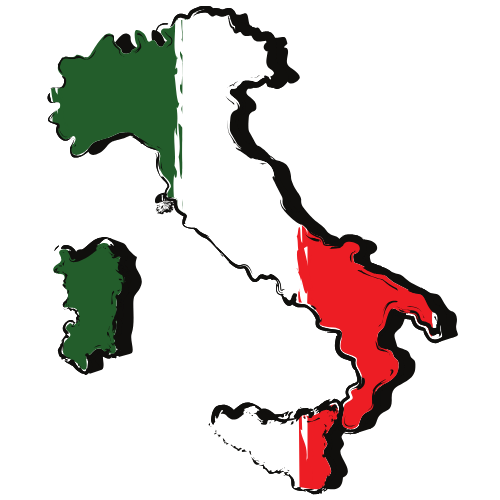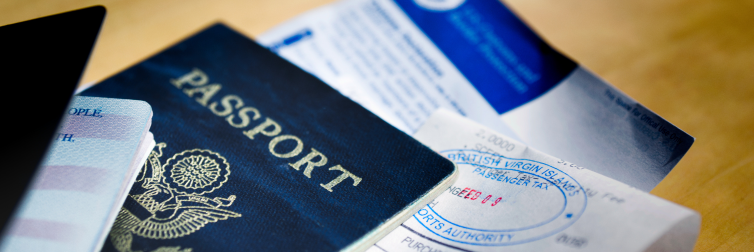Visa Interview
ITALY

Why Study in the Italy?
Italy is renowned for its rich cultural heritage, exceptional cuisine, and high-quality education system. The country’s universities offer a wide array of academic programs, attracting students from all over the world. Studying in Italy gives students the opportunity to immerse themselves in Italian culture, enjoy its vibrant cities, and explore its fascinating history. Additionally, Italy is home to world-leading institutions in art, fashion, design, architecture, and more.
Types of Student Visas
Short-Stay Visa (C Type)
For students attending short courses or training programs lasting less than 90 days.
Long-Stay Visa (D Type)
For students enrolling in degree programs or long-term training that lasts more than 90 days.

Eligibility Criteria
General Requirements
To qualify for a student visa to Italy, applicants must meet several criteria:
Valid Passport: Ensure your passport is valid for the entire duration of your stay in Italy.
University Admission Letter: Obtain an admission letter from a recognized Italian institution.
Proof of Language Proficiency: Provide proof of proficiency in Italian or English through recognized language tests like CILS, CELI, IELTS, or TOEFL.
Financial Resources: Demonstrate sufficient funds to cover tuition, living expenses, and other costs during your stay in Italy.
Specific Visa Requirements
Short-Stay Visa (C Type): Proof of enrollment in a short-term course is required.
Long-Stay Visa (D Type): Requires an official admission letter from an Italian institution for a program lasting more than 90 days.
Application Process
Step-by-Step Guide

Accept an Offer from an Italian Institution: Apply to and receive an offer from a recognized Italian educational institution.
Complete the Online Application: Fill out the appropriate visa application form for your chosen type.
Pay the Visa Application Fee: Pay the applicable visa fee for processing your application.
Prepare Documents: Gather essential documents such as your passport, admission letter, financial proof, language proficiency certificates, and any additional required documentation.
Schedule a Visa Appointment: Book an appointment at your nearest Italian embassy or consulate.
Attend the Visa Interview: Submit your documents and answer any questions regarding your study plans.
Wait for the Decision: Visa processing times may vary, so be patient during this period.
Financial Requirements
To obtain a student visa for Italy, applicants must show proof of financial stability, including:
Demonstrating Financial Stability
Proof of Funds: Bank statements, sponsor letters, or financial aid awards showing sufficient funds (approximately €448.07 per month).
Scholarship Proof: If you have been awarded a scholarship, provide relevant documentation.
Financial Guarantee: A letter from a sponsor or proof of parental income can also serve as financial evidence.
Scholarships and Financial Aid
Italian Government Scholarships: The Italian government offers scholarships for international students pursuing higher education in Italy.
University Scholarships: Many Italian institutions provide scholarships based on academic merit or need.
Regional Scholarships: Various Italian regions offer financial aid to international students.
External Scholarships: Many international organizations, foundations, and governments offer scholarships for studying in Italy.
Post-Visa Approval

Pre-Departure Checklist
- Arrange Travel: Book your flights and plan your arrival in Italy.
- Secure Accommodation:Arrange your housing, either on-campus or in private accommodations.
- Prepare Necessary Items:Pack all essentials for your stay and ensure you have all required travel documents.
Arrival in the USA
- Customs and Immigration: Be ready for customs inspection and have all your documents accessible.
- Residence Permit:Apply for a residence permit (Permesso di Soggiorno) within 8 days of your arrival.
Compliance with Visa Rules
- Attend Classes Regularly:Ensure you maintain full-time enrollment and good academic standing.
- Work Authorization: You must not work off-campus without proper authorization.
- Keep Documents Updated:Always ensure that your visa and passport remain valid.
Extension and Renewal
- Program Extension: If your course or program duration is extended, you may need to apply for a visa extension.
- Visa Renewal: Follow the official process to renew your visa before it expires, ensuring you continue to meet all requirements.
Maintaining Your Visa Status

Visa Interview
Preparation Tips
Understand Your Program: Be clear about why you have chosen this specific course and institution.
Practice Common Questions: Prepare answers to typical visa interview questions regarding your study plans, background, and financial resources.
Organize Documents: Ensure all your documents are organized, complete, and easy to present.
Common Questions
Why did you choose this specific school and program?
How will you finance your education and living expenses?
What are your plans after completing your studies in Italy?


Working While Studying
On-Campus Employment
Eligibility: Students can work on-campus up to 20 hours per week during academic terms and full-time during university holidays.
Types of Jobs: Common on-campus roles include research assistants, library aides, and positions in student services or campus facilities.
Off-Campus Employment
Work Permit Holders: Students with work permits can work off-campus up to 20 hours per week during term time and full-time during holidays.
Internships: Internships or work experience related to your field of study may be allowed, often in collaboration with academic programs.
FAQs
The process can take several weeks or months. It's advised to apply well in advance of your planned start date.
Yes, your spouse and children may be eligible to join you on a dependent visa. Be sure to check the specific requirements.
If your application is denied, you may appeal the decision or submit a new application with additional supporting documents.


